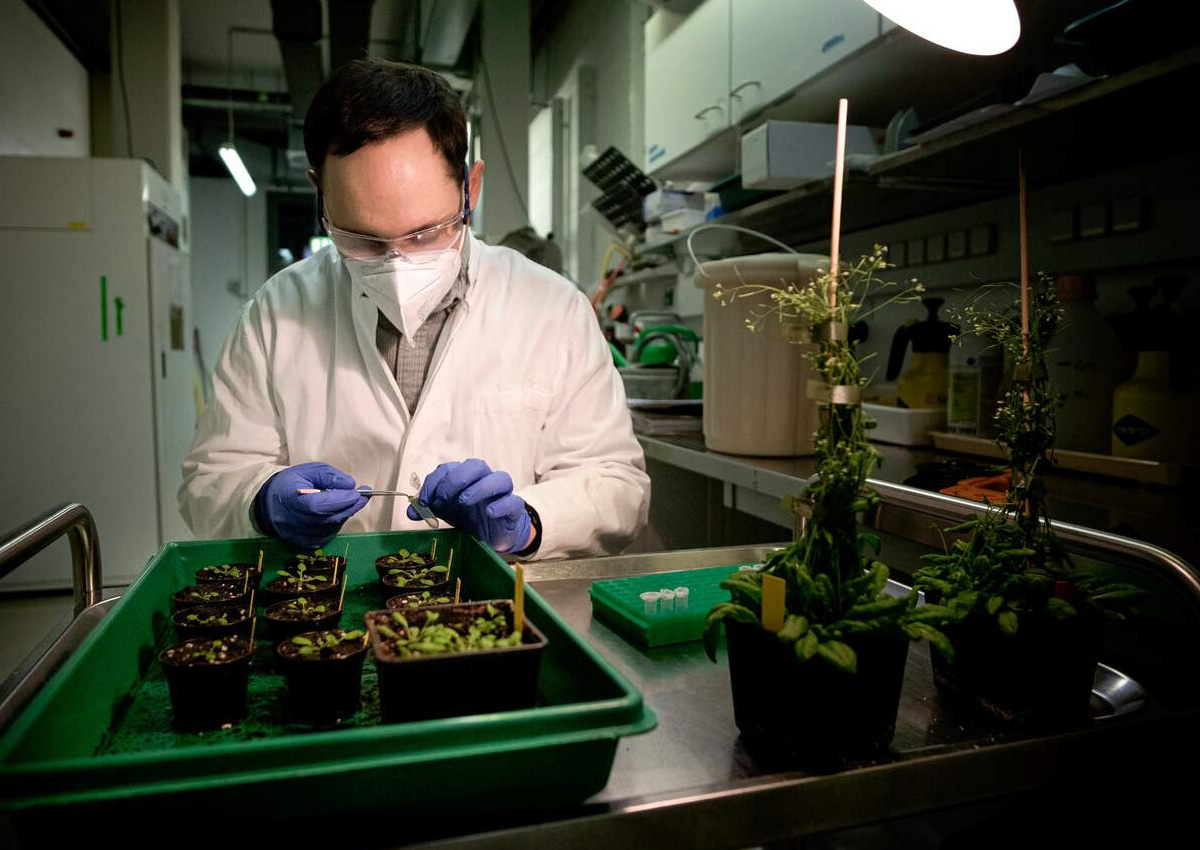
Researchers Solve Riddle of Plant Immune System
February 17, 2021| |
An international research team led by the University of Göttingen studied the molecular mechanisms of plant immune system and was able to show the connection between a relatively unknown gene and resistance to pathogens.
The research team from Plant Responses To Eliminate Critical Threat (PRoTECT), an International Research Training Group (IRTG) founded in 2016 with the University of Göttingen and the University of British Columbia in Vancouver aimed to identify and describe a gene from a disease-resistant plant. The researchers observed that plants that do not possess this previously little-known gene strongly accumulate active acids and show a significantly increased resistance to pathogens. However, this resistance is accompanied by extremely reduced growth.
According to Professor Ivo Feußner from the Göttingen Centre for Molecular Biosciences (GZMB), they have succeeded in deciphering the molecular connection between the gene product and the inactivation of acids during normal plant growth. This understanding provides scientists with a promising approach to improving the natural resistance of crops. "The basic results can be used to help breeders isolate less susceptible plants," says Lennart Mohnike, first author of the study.
For more details, read the article on the University of Göttingen website.
| |
You might also like:
- Researchers Map Plant Immune System
- Researchers Discover Vaccine to Strengthen Plant Immune System
- Research Sheds Light on Key Component of Plant Immune Systems
Biotech Updates is a weekly newsletter of ISAAA, a not-for-profit organization. It is distributed for free to over 22,000 subscribers worldwide to inform them about the key developments in biosciences, especially in biotechnology. Your support will help us in our mission to feed the world with knowledge. You can help by donating as little as $10.
-
See more articles:
-
News from Around the World
- GM Crops' Benefits to Fight Climate Change May Be Underestimated Than Previously Documented
- International Team First to Successfully Stack Virus Resistance Plus Iron and Zinc Biofortification in a Non-Cereal Crop
- Canadians Link Gene Editing with GMOs, New Website on Gene Editing Launched
- Carnegie Scientists Uncover Nutrient Sensing Capabilities of Plants as Answer to Climate Change
- Plant Experts Tag Team against Asian Soybean Rust
- Breakthrough Research Finds Genes to Boost Hybrid Wheat Breeding
- 15-year Data Show GM Rapeseed, Soybean Do Not Affect Biodiversity in Japan
- Swedish Researchers Develop Biosensors to Boost Agri Production amidst Climate Change
- Research Identifies Best Gene to Provide Potatoes Resistance Against Late Blight
- Researchers Solve Riddle of Plant Immune System
-
Research Highlights
- Smelly Parasitic Plant Lost About Half Its Genes, Stole Some from Hosts
-
Plant
- PH S&T Department Poised to Develop NBT Guidelines
-
Read the latest: - Biotech Updates (December 17, 2025)
- Gene Editing Supplement (December 17, 2025)
- Gene Drive Supplement (February 22, 2023)
-
Subscribe to BU: - Share
- Tweet

